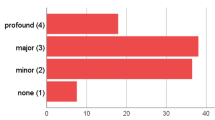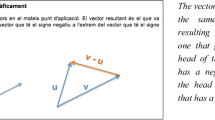Abstract
In this article, three of David Clarke’s long time collaborators offer perspectives on how David shaped and continued to influence projects in which they were involved, over a 30 year period. The three sections of the article focus on David’s contributions to original research on high stakes assessment, research on the development and use of assessment alternatives to traditional pen and paper assessments, and research in three smaller projects involving the use of open-ended questions, the implementation of the Australian Curriculum: Mathematics, and the complexity of the mathematics classroom, respectively. Through discussion of these various national and international projects, the authors provide examples of David’s capacity to synthesise theoretical ideas, to appreciate the implications for classroom practice, and to communicate both perspectives to researchers, teacher educators and teachers. The authors argue that David’s capacity to distil crucially important ideas into brief, highly insightful statements, was fundamental to the enactment and effectiveness of both research studies and projects for the teaching profession.
Similar content being viewed by others
References
Australian Curriculum and Assessment Reporting Authority. (2018). National Assessment Program Literacy and Numeracy. Author.
Australian Curriculum and Assessment Reporting Authority. (2014). Australian Curriculum: Mathematics. Author.
Blum, J. (1978). Pseudoscience and mental ability. Monthly Review Press.
Caro, D.H., Lenkeit, J., & Kyriakides, L. (2015). Instructional approaches and differential effectiveness across learning contexts: Evidence from PISA 2012. Paper presented at the CIES Conference. Washington, DC.
Clarke, D. J. (1989a). Assessment alternatives in mathematics. Curriculum Development Centre.
Clarke, D. J. (1989b). Mathematical behaviour and the transition from primary to secondary school (Unpublished doctoral thesis). Monash University.
Clarke, D. J. (1992). Activating assessment alternatives in mathematics. Arithmetic Teacher, 39(6), 24–29.
Clarke, D. J. (1997). Constructive assessment in mathematics: Practical steps for classroom teachers. Key Curriculum Press.
Clarke, D., Barnes, M., & Stephens, M. (2000). Assessment: The engine of systemic educational reform? Journal of Curriculum Studies, 12(5), 623–650.
Clarke, D. J., Clarke, D. M., & Lovitt, C. (1990). Changes in mathematics teaching call for assessment alternatives. In T. J. Cooney & C. R. Hirsch (Eds.), Teaching and learning mathematics in the 1990s (Yearbook of the National Council of Teachers of Mathematics, USA, pp. 118–129). NCTM.
Clarke, D. J., Díez-Palomar, J., Hannula, M., Chan, M. C. E., Mesiti, C., Novotna, J., Žlábková, I., Cao, Y., Yu, G., Hollingsworth, H., Roan, K., Jazby, D., Tuohilampi, L., & Dobie, T. (2016). Language mediating learning: The function of language in mediating and shaping the classroom experiences of students, teachers and researchers. In C. Csíkos, A. Rausch, & J. Szitányi (Eds.), Proceedings of the 40th Annual Meeting of the International Group for the Psychology of Mathematics Education (vol. 1, pp. 349–374). PME.
Clarke, D. J., Emanuelsson, J., Jablonka, E., & Mok, I. A. C. (Eds.). (2006a). Making connections: Comparing mathematics classrooms around the world. Sense Publishers.
Clarke, D. J., Keitel, C., & Shimizu, Y. (Eds.). (2006b). The Learner’s Perspective study. Mathematics classrooms in twelve countries: The insider’s perspective. Sense Publishers.
Clarke, D. J., & Mesiti, C. (2010). The Lexicon Project: Accessing the pedagogical vocabulary in languages other than English. In M. M. F. Pinto & T. F. Kawasaki (Eds.), Proceedings of the 34th Conference of the International Group for the Psychology of Mathematics Education (vol. 1, pp. 237–238). PME.
Clarke, D. J., & Stephens, W. M. (1996). The ripple effect: The instructional impact of the systemic introduction of performance assessment in mathematics. In M. Birenbaum & F. Dochy (Eds.), Alternatives in assessment of achievement, learning practices and prior knowledge (pp. 63–92). Kluwer.
Clarke, D. M., & Wilson, L. (1994). Valuing what we see. Mathematics Teacher, 87(7), 542–559.
Clements, M. A. (1980). Analyzing children’s errors on written mathematical tasks. Educational Studies in Mathematics, 11(1), 1–21.
Lovitt, C., & Clarke, D. M. (1988, 1989). The mathematics curriculum and teaching program professional development package: Activity bank (vols. 1 & 2). Curriculum Development Centre.
Lovitt, C., Stephens, W. M., Clarke, D. M., & Romberg, T. A. (1990). Mathematics teachers reconceptualizing their roles. In T. J. Cooney & C. R. Hirsch (Eds.), Teaching and learning mathematics in the 1990s (Yearbook of the National Council of Teachers of Mathematics, pp. 229–236). NCTM.
Mousley, J., & Sullivan, P. (1996). Learning about teaching. AAMT (ISBN 0 7300 2164 5. Accompanied by CD-ROM).
Organisation for Economic Co-operation and Development. (2019). The future of education and skills Education 2030. https://www.oecd.org/education/2030/E2030%20Position%20Paper%20(05.04.2018).pdf
Rowe, M. B. (1978). Wait, wait, wait … School Science and Mathematics, 78(3), 207–216.
Shulman, L. S. (1987). Knowledge and learning: Foundations of the new reform. Harvard Educational Review, 7(1), 1–22.
Stephens, W. M., Clarke, D. J., & Pavlou, M. (1994). Policy to practice: High-stakes assessment as a catalyst for curriculum change. In G. Bell, B. Wright, N. Leeson, & J. Geake (Eds.), Challenges in mathematics education: Constraints on construction: Proceedings of the 17th Annual Conference of the Mathematics Education Group of Australiasia (vol. 2, pp. 571–580). Mathematics Education Research Group of Australasia.
Sullivan, P., & Clarke, D. J. (1991). Catering to all abilities through “good” questions. Arithmetic Teacher, 39(2), 14–18.
Sullivan, P., Clarke, D. M., Albright, J., Clarke, D. J., Farrell, L., Freebody, P., & Gerrard, J. (2012). Teachers’ planning processes: Seeking insights from Australian teachers. Australian Primary Mathematics Classroom, 17(3), 4–8.
Sullivan, P. A., Clarke, D. J., Clarke, D. M., Farrell, L. E., & Gerrard, J. (2013). Processes and priorities in planning mathematics teaching. Mathematics Education Research Journal, 25(4), 457–480.
Author information
Authors and Affiliations
Corresponding author
Additional information
Publisher's Note
Springer Nature remains neutral with regard to jurisdictional claims in published maps and institutional affiliations.
Rights and permissions
About this article
Cite this article
Clarke, D., Stephens, M. & Sullivan, P. Reflections on themes in professional contributions by David Clarke. ZDM Mathematics Education 54, 457–465 (2022). https://doi.org/10.1007/s11858-021-01288-5
Accepted:
Published:
Issue Date:
DOI: https://doi.org/10.1007/s11858-021-01288-5




